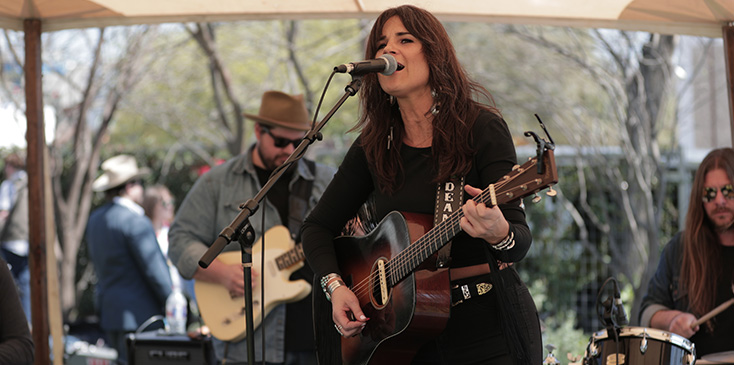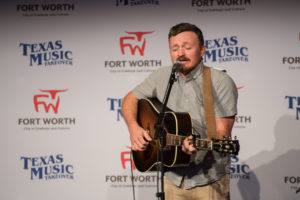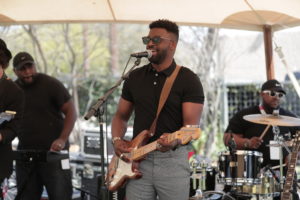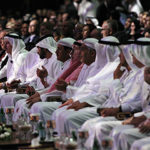
When walking through downtown Fort Worth, Texas, it’s unlikely you’ll get more than a few blocks before hearing live music. Whether it’s country tunes blaring from Billy Bob’s Texas — the largest honky tonk in the state — or the Fort Worth Symphony Orchestra performing a summer concert in the Botanic Garden, music is a part of the southern destination’s DNA. That’s why last year the Texas Music Office named Fort Worth the first music-friendly community in Texas.
“Our being given this designation before any other city, including Austin or Dallas,” Brooks Kendall, president of Hear Fort Worth, tells Convene, “is indicative of the huge way that Fort Worth’s government, business community, creative community, and music fans are able to work together to support music as a valuable part of our culture.”
Visit Fort Worth launched Hear Fort Worth in 2016 to help promote the city’s music scene locally and abroad. The advocacy organization helps cultivate local artists by holding education sessions and connecting industry professionals to the resources they need. Hear Fort Worth was integral in securing the city its music-friendly title. The distinction means big things for the city’s art scene, as well as its meetings offerings.

“For onsite performers at an event, the resources available here are top-notch and likely more affordable than in many other cities,” Kendall says. “For guests of events and meetings who are wanting some authentic memories outside of meeting hours, local, original live music is easy to find, and the history of songwriting and musical innovation can be felt all over town, in streets that were walked and bars that were played by Fort Worth legends like Townes Van Zandt, Ornette Coleman, Delbert McClinton, and Bob Wills.”
The Cultural Capital of the Southwest is currently experiencing a musical renaissance right now, with new musicians and record labels being drawn to Fort Worth. “Major label artists from all over the world come to Fort Worth to record at one of our studios,” Kendall says. When the Texas Music Office was the “Music-Friendly Communities” certification program, Fort Worth’s “level of cooperation between local creatives and city government was used as a model,” he adds.
As part of the music-friendly program, Visit Fort Worth and Hear Fort Worth teamed up to host a music-friendly community workshop in July 2017, which was attended by more than 100 music business professionals in the area. The two organizations are also partnering with local nonprofits and music education programs to foster community development, and they established a city, county, and regional Music Office liaison, who can respond to constituents’ questions concerning the initiative. Visit Fort Worth also took 12 local bands to SXSW this year to showcase artistic talent as part of the Fort Worth Now House.

Meeting organizers can also take advantage of the city’s new and upcoming music venues for private events. The recently opened Fort Worth Live is located in a 120-year-old building off of Sundance Square, an entertainment and dining district. “This venue highlights singer-songwriters, jazz, and Americana music,” Kendall says, “and its concept highlights landmarks in Fort Worth’s music history.” Also new is the Tin Panther, which Kendall describes as “a funky space showcasing local indie rock most nights of the week.”
Other unique event venues include the upcoming 14,000-seat Dickies Arena, set to open November 2019; Shipping & Receiving, a hip venue that includes a lounge, outdoor stage, and warehouse-style event space accommodating up to 1,000 people; and Lola’s, Fort Worth’s seminal rock club that features an indoor music venue and a 1,000-capacity outdoor stage and bar that’s perfect for private events.
“We have been working hard to pull together all of the resources we have to make the most out of them,” Kendall says, “and being the first city to receive this designation is one sign that our initiative is paying off.”




